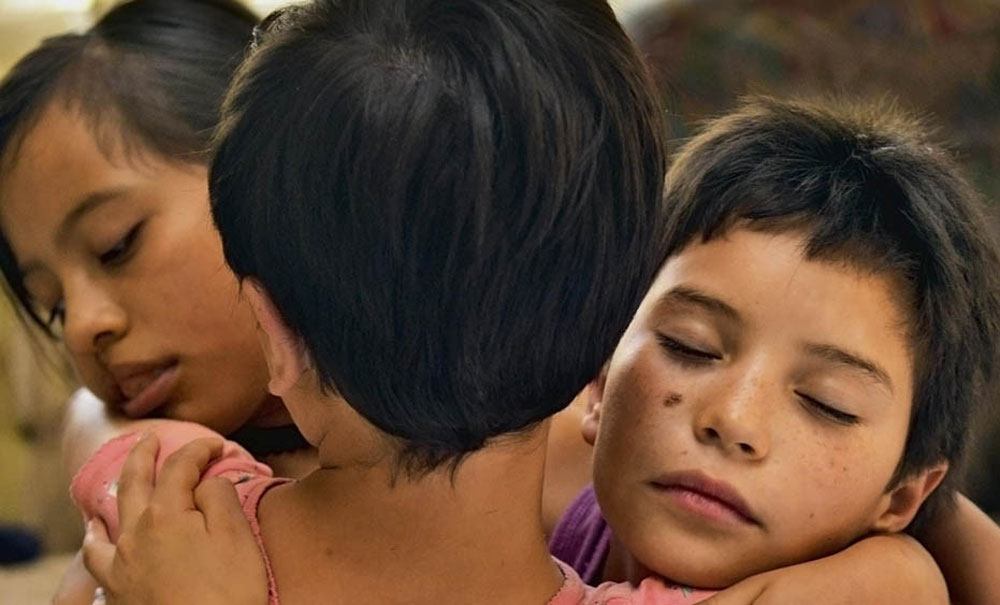It takes at least an hour of screen time and seven years for Ana (played by Ana Cristina Ordonez Gonzalez at 13, and Mayra Membreno as her younger self) to ask her mother Rita (Mayra Batalla) in “Prayers for the Stolen (“Noche del Fuego)” why she’s mad at her, though Rita insists she’s not. It certainly seems that way when Rita will hurl a glass at Ana for refusing to serve her mother another drink when she’s being volatile or threatening to knock her teeth out for putting on lipstick. Writer/director Tatiana Huezo refrains from ever actually showing violence in her second feature, but conveys how it has insinuated itself into every part of a small Mexican village that has become overrun by cartels, making every act of love as likely a sign of tenderness as it’s apt to open a wound.
By sticking to the perspective of the young Ana throughout, “Prayers for the Stolen” is able to consider how much protection can inflict pain as its young protagonist as no consciousness of why her mother is ever being so stern with her yet as the town square increasingly fills up with men outfitted in paramilitary gear, it doesn’t seem so extreme. A code of silence has been adopted by the entire town, shaken by the abduction of the young daughter of a local cow farmer whose herd is left to roam around the hills after the rest of the family leaves without a trace, unknown to most whether they fled on their own accord or were killed. When a teacher convenes the mothers of the village at the local school to ask what happened to one of his students, none are compelled to tell him, even when the decision means that he’ll leave the school in frustration, effectively shutting it down when no other teachers will take the assignment to travel to such dangerous territory.
As captivating as Ordonez Gonzalez and Membreno are as Ana as she grows up to become increasingly aware of her circumstances, the film’s evocation of a place is what makes “Prayers for the Stolen” so arresting, with Huezo tucking telling details of the rural community into every scene from following Ana and Rita up to the mountains where locals all attempt to make phone calls when it’s the only area to get cell reception to the safe haven of a beauty salon that the owner has paid to keep the cartel at bay, though it’s hardly relaxing to see men with guns patrolling right outside their doors. What was once a fertile farming region has now been coopted by the collection of poppy gum to distill into opium, a transition that may have happened over generations, but Huenzo brilliantly needs not to go back in time to show when introducing the land Rita and Ana are able to live off of inevitably gives way to nearly everyone in the village working in the poppy fields for the cartels. Leaving the villains largely off-screen, “Prayers for the Stolen” instead captures the warped reality they have created that threatens to make them out of even those with the best intentions and although such changes are often too small and subtle to detect as they are happening, Huezo impressively makes it impossible to look away.
“Prayers for the Stolen” will screen at Cannes as part of the Un Certain Regard section on July 16th at 8:30 am at the Debussy Theatre and 10 am at the Cineum Aura.




